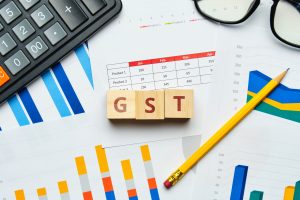 The Supreme Court on Monday said that after the enactment of the Central Goods and Services Tax Act in 2017, the Centre was not bound to continue with its pre-existing 100 per cent outright excise duty exemption policy of 2003 to promote industrial activities in certain less-industrialised states like Uttarakhand and Sikkim.
The Supreme Court on Monday said that after the enactment of the Central Goods and Services Tax Act in 2017, the Centre was not bound to continue with its pre-existing 100 per cent outright excise duty exemption policy of 2003 to promote industrial activities in certain less-industrialised states like Uttarakhand and Sikkim.
A bench comprising justices B R Gavai and B V Nagarathna dismissed the appeals of Hero Motocorp and Sun Pharma Laboratories Ltd, which had plants in Uttarakhand and Sikkim respectively, assailing the reduction of the benefit of 100 per cent exemption in excise duty to 58 per cent under the new GST regime.
The top court, however, permitted the two companies to make representations to respective state governments as well as to the GST Council.
“We also request the state governments and the GST Council to consider such representations, if made, in accordance with what has been observed… in an expeditious manner,” Justice Gavai, who wrote the 73-page judgement, said. “It is further to be noted that the GST Council is a constitutional body. It has powers to make recommendations on wide-ranging issues concerning GST, including grant of exemptions from the GST. It also has power to make recommendations with regard to special provisions governing North Eastern and Himalayan States,” it said.
The bench said several industrial units have been established in the Himalayan and Northeastern states in pursuance of the 2003 office memorandum where lakhs of persons are employed in such industries, it said, adding that it would be appropriate for the states concerned to consider reimbursing such units. The bench, referring to judgements on the scope of judicial review of such policy decisions of the government, said, “The plea of promissory estoppel would not be available against the exercise of the legislative functions of the State. Equally, it cannot be invoked for preventing the government from discharging its functions under the law.”
We are, therefore, of the considered view that even on the ground of change of policy, which is in public interest or in view of the change in the statutory regime itself on account of the GST Act being introduced as in the instant case, it will not be correct to hold the Union bound by the representation made by it, i.e. by the said O.M. of 2003. Further, this would be contrary to the statutory provisions as enacted under Section 174(2)(c) of the CGST Act,” it said. There is no duty cast on the Centre to refund 100 per cent of CGST, it said, adding that the central government was not bound to continue with a representation made by it in 2003 in view of the change of law by the enactment of the CGST Act.
The pleas of Hero Motocorp and Sun Pharma Laboratories Ltd against the reduction in exemption of duty were dismissed by the Delhi High Court and the Sikkim High Court respectively.
The central government, based on the statement made by the then prime minister, in 2003 provided that for some states including Uttarakhand, new industrial units and existing industrial units on their substantial expansion would be entitled to exemption of 100 per cent outright excise duty for 10 years from the date of commencement of commercial production.
Hero Motocorp Ltd had established a new industry unit for manufacture of motorcycles at Haridwar, Uttarakhand which commenced commercial production from 2008. It availed the exemption until July 1, 2017 and after that the Goods and Service Tax regime came and the benefit being enjoyed by it was reduced to 58 per cent. Sun Pharma Laboratories Ltd had similar grievances.
Source: PTI
https://www.ptinews.com/news/legal/centre-not-bound-to-continue-with-earlier-excise-duty-exemption-policy-after-gst-regime-sc/436981.html


